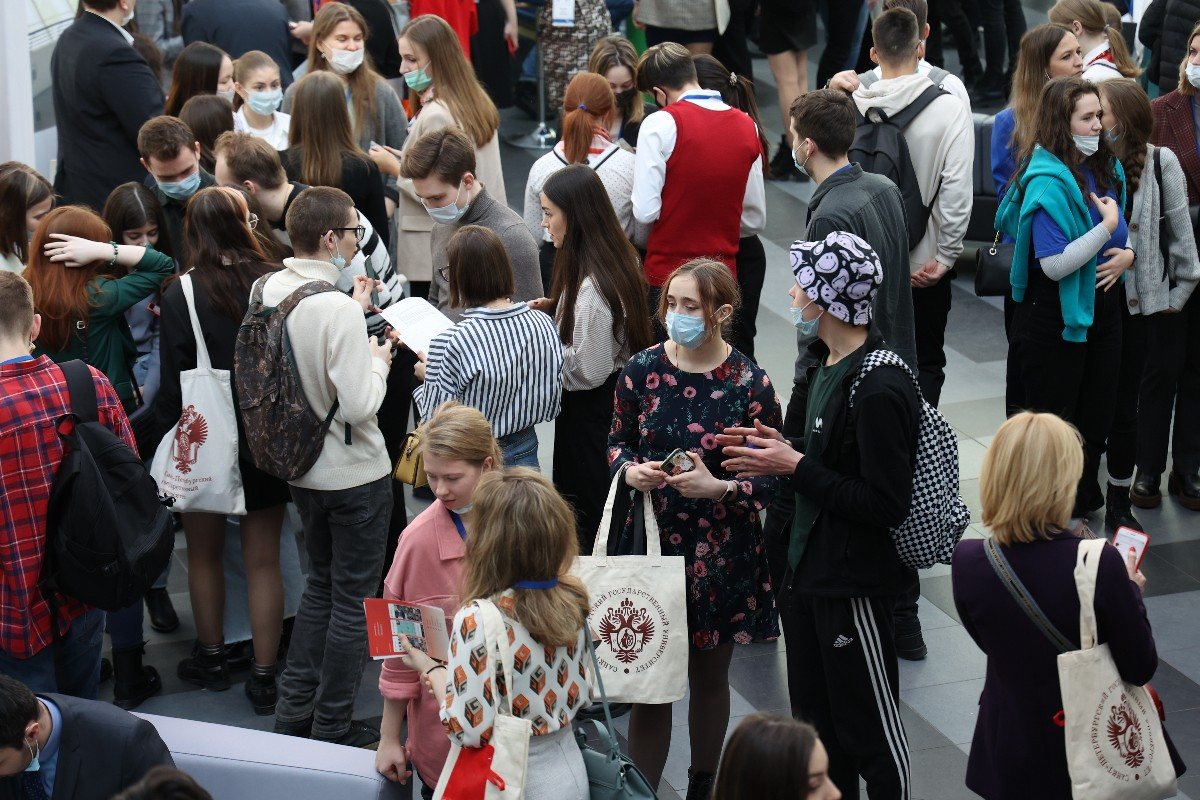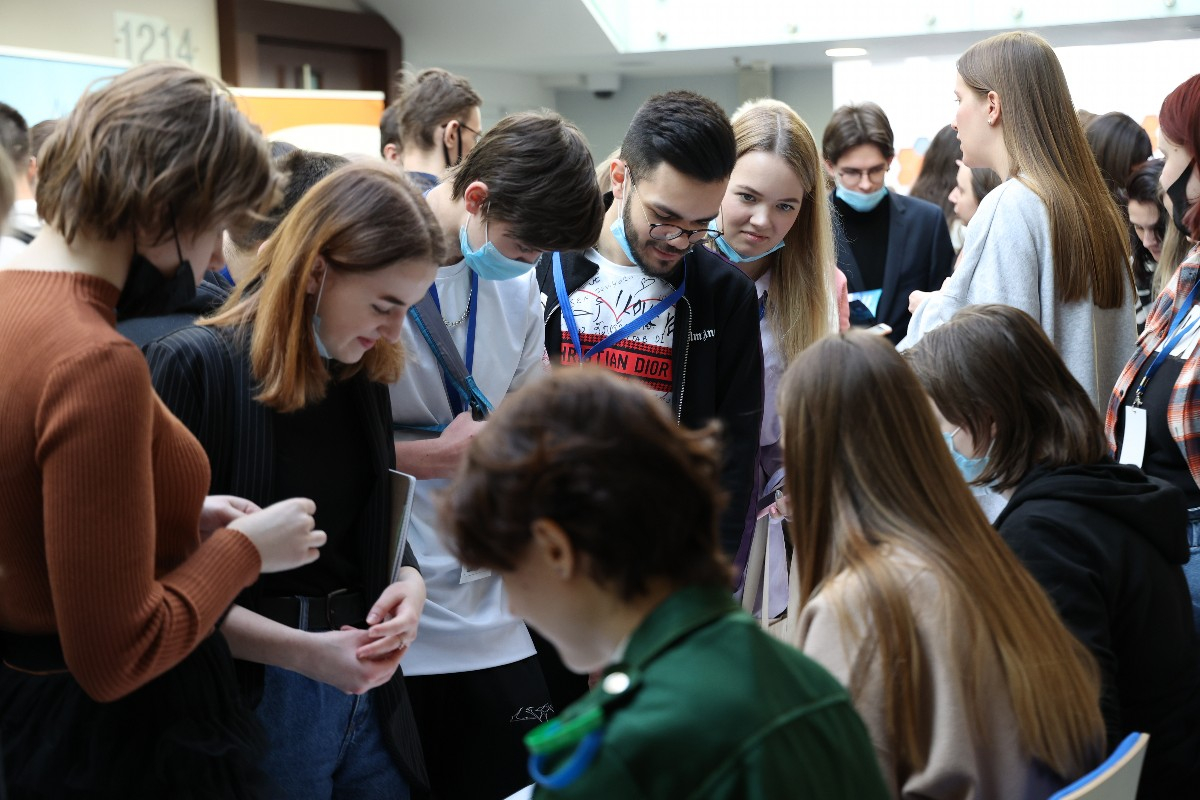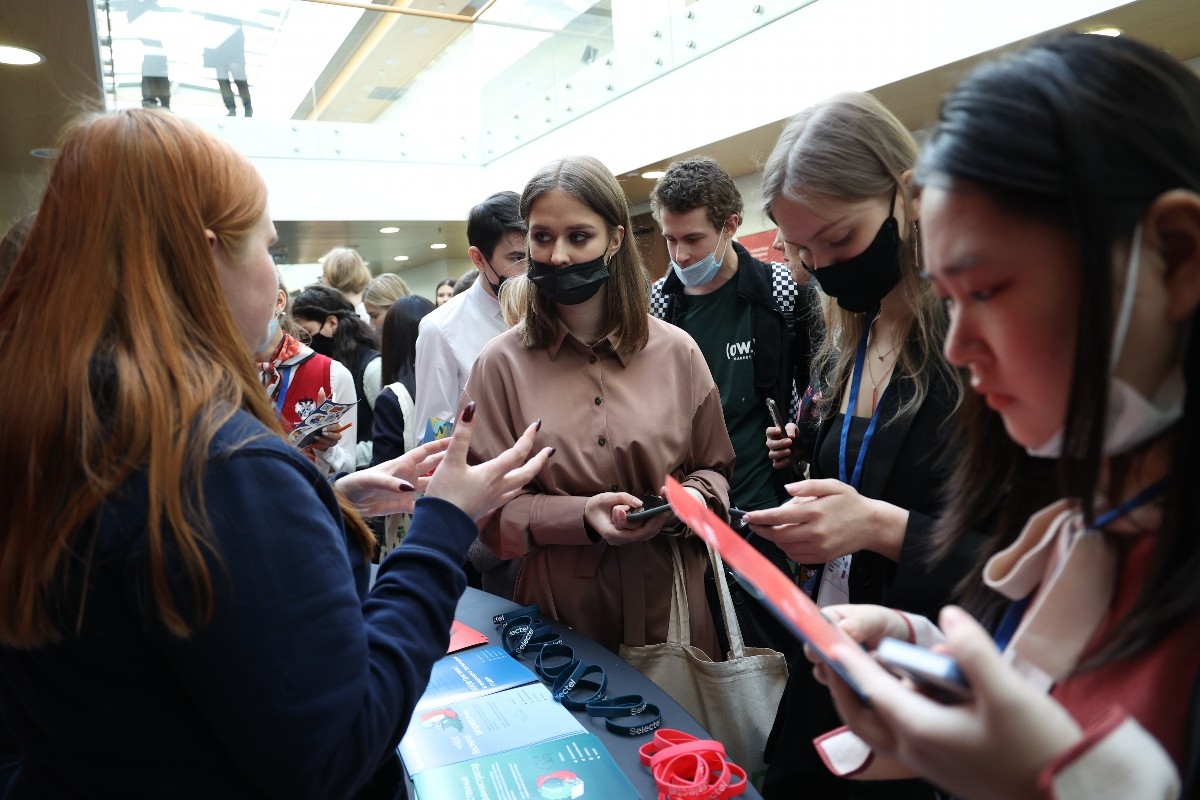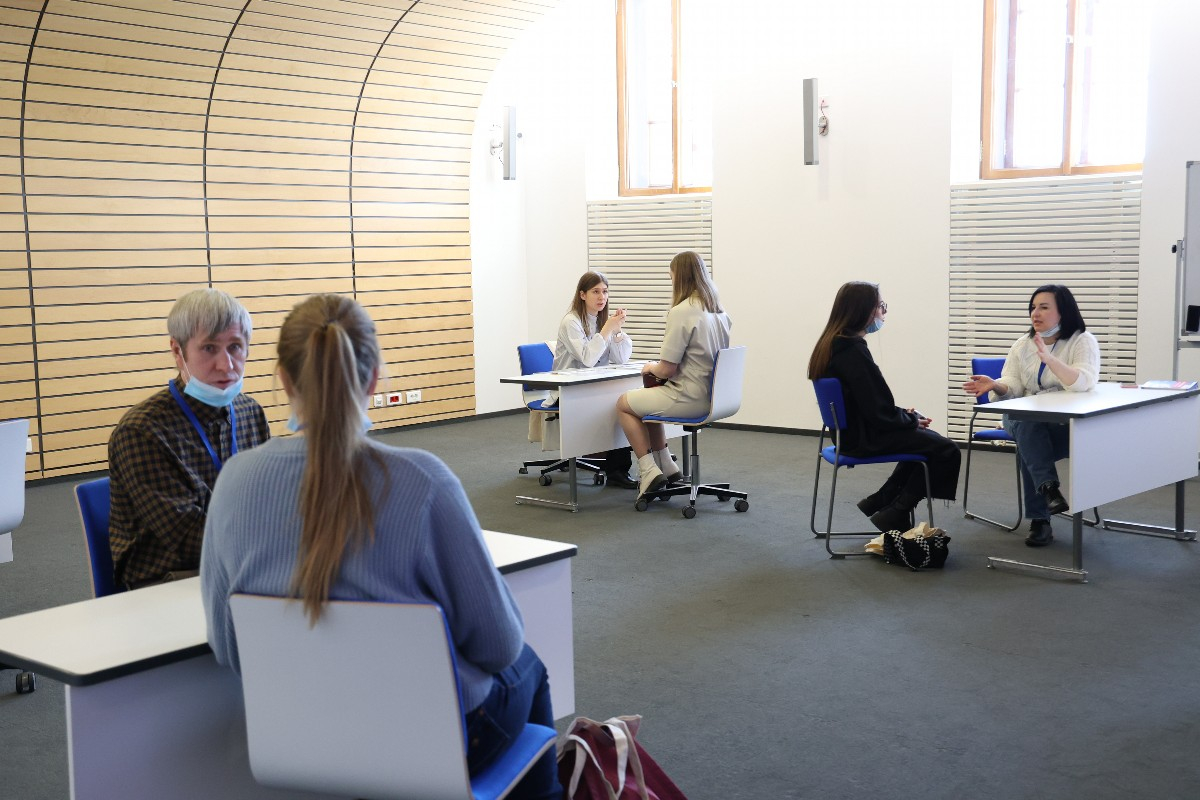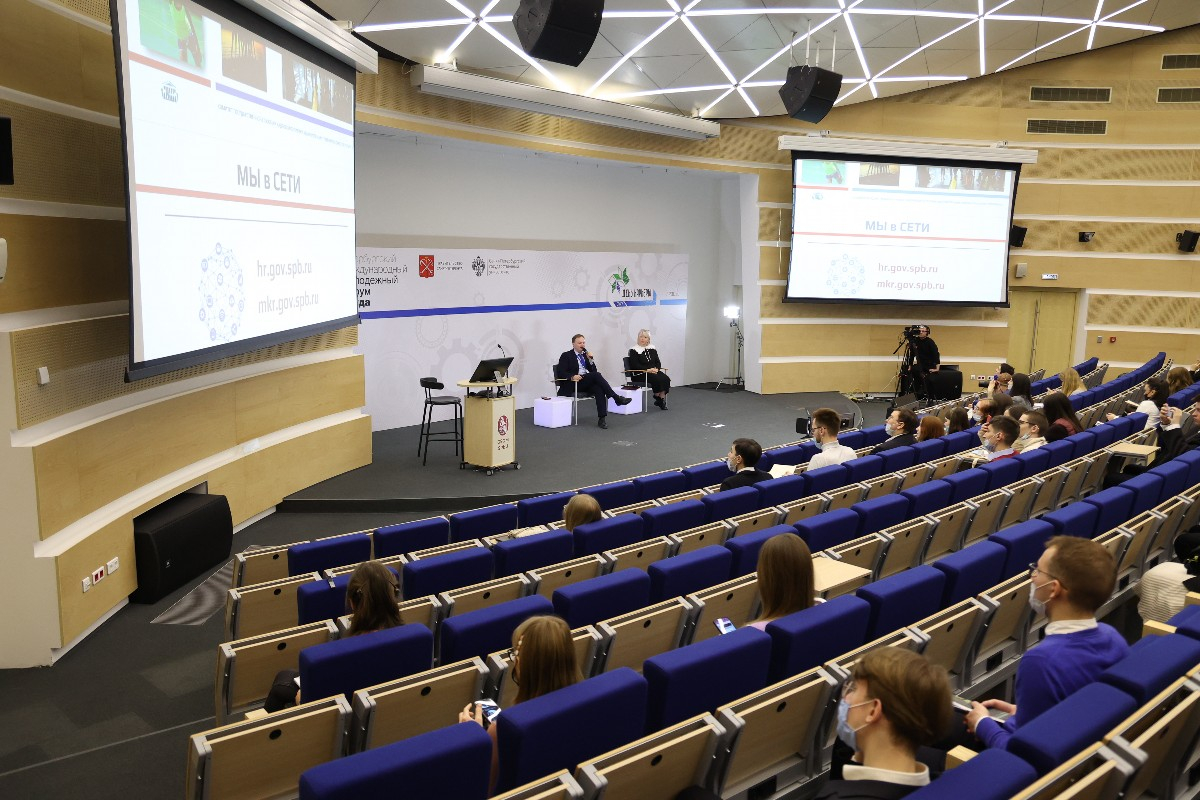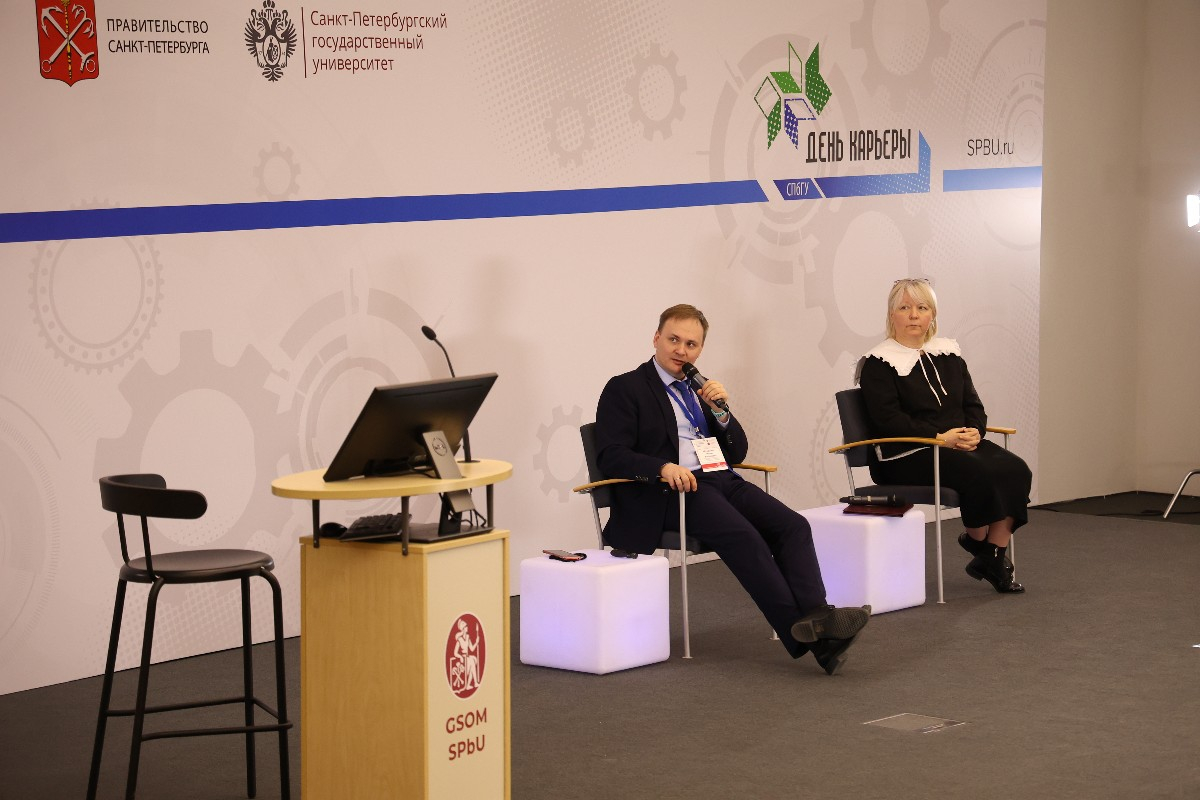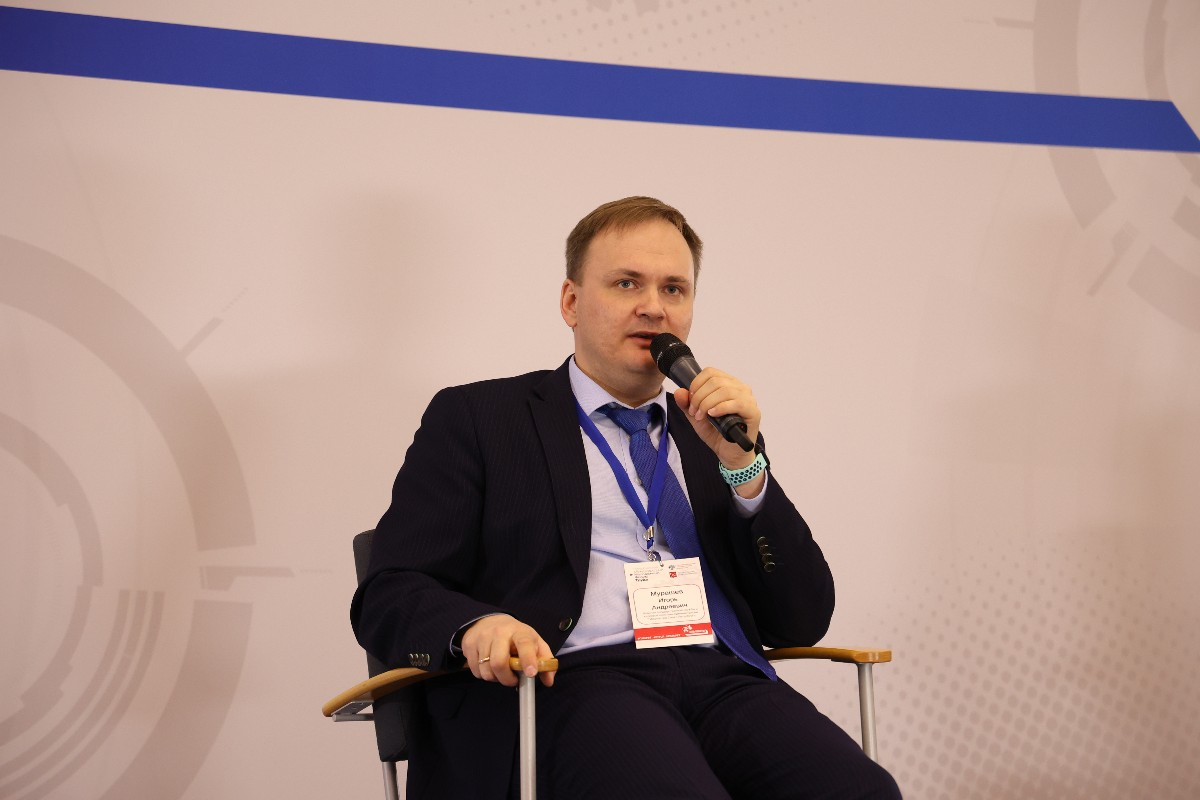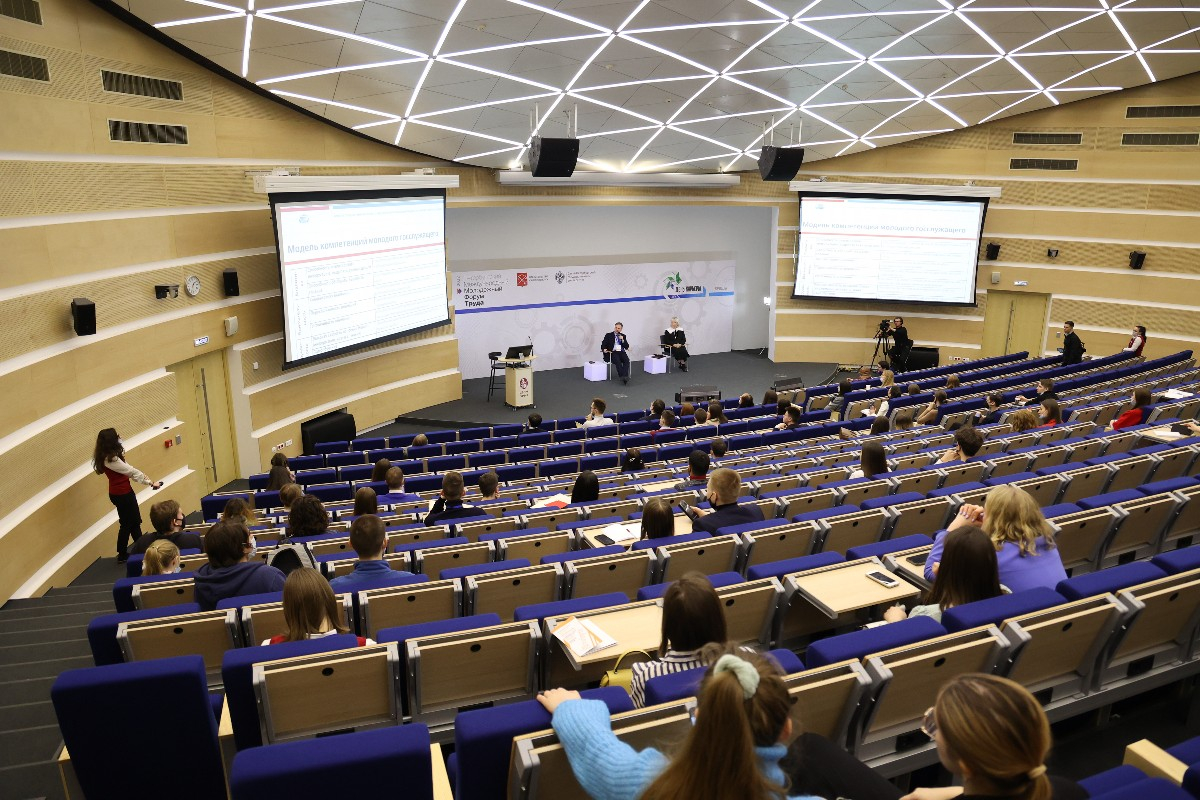‘It all starts at a specialist level’: St Petersburg University holds the St Petersburg Youth Labour Forum
Can a university graduate without work experience get a decent position and take part in the creation of important city projects? How do employers and educational institutions interact today? These and other questions were discussed by experts during the sections of the 6th St Petersburg Youth Labour Forum.
There are many stereotypes associated with the civil service. Young people often think that civil service work is boring, monotonous and does not enable them to develop their professional skills. Myths about civil service were dispelled by Igor Murashev, Deputy Chairman of the Committee on Public Service and Personnel Policy of the Governor’s Administration of St Petersburg and Head of the Evaluation and Personnel Reserves Department. For example, he said that by participating in the life of the city and solving its various problems in healthcare, education, construction or property relations, an employee inevitably becomes a high-level professional and acquires experience that they can apply even if they decide to change the sphere of activity in the future. They gradually build up a wide range of business contacts and communications: within the first couple of months of employment, they get about a hundred numbers in their phone book, and over time, the number of people with whom they need to interact only grows.
Igor Murashev stressed that no project is carried out by a single person or unit: working in the civil service implies cross-functional interaction between different departments. ’There is a myth that whatever draft law, document or idea is developed, there is always a high-ranking manager behind it. This is not true,’ he noted. ’Everything starts at the level of a specialist. A junior or senior position creates all the basic groundwork, gathers ideas, concepts and does the rough analysis. So it is not even so much an opportunity as it is a demand on people: they cannot be comfortable with a boss telling them what to do’.
Decisions have to be made by yourself. I think that at your age, this is rather a plus, because you will be able to directly, with your own hands, determine the lives of tens or hundreds of thousands of people.
Igor Murashev, Deputy Chairman of the Committee on Public Service and Personnel Policy of the Governor’s Administration of St Petersburg and Head of the Evaluation and Personnel Reserves Department
The Youth Talent Pool helps you find entry-level positions in the civil service that do not require work experience. Its aim is to fill vacancies in the staffing table with assessed people who are ready for responsible work. Igor Murashev said that for the Committee on Public Service and Personnel Policy this is not a PR project, but a really working tool: since its formation, it has enabled more than a thousand young professionals, who are now acting officials, to gain experience. Anyone can apply on the human resources portal and be invited to undergo an assessment by human resources professionals.
While for university graduates the civil service is the launching point for their careers, junior students can do an internship there and apply their knowledge to real-world problems. ’We keep the door wide open for trainees. Colleagues consider the students who come to us as possible candidates for junior positions, and when the students do the “run-in” they understand why this state body exists, what it does, what its results are and what work place they can find there,’ said Alevtina Simakova, Head of the Civil Service and Personnel Department of the Administration of the Governor and Government of the Leningrad Region. ’Of course, your specialisation is also taken into account. Specialists in international relations are needed not only in the committee for foreign relations: people with knowledge of language and international situation are also needed in the committee for agro-industrial complex. Even for specific professions, we will find internships that will be of benefit to us and the government.’ She added that over the past five years, the Leningrad Region has hosted 529 trainees, and since the start of the coronavirus pandemic, trainees in some fields, particularly law, have been able to do their internships remotely.
Even for those from specific professions, we will find opportunities for internships that are beneficial to themselves and the authority.
Alevtina Simakova, Head of the Civil Service and Personnel Department of the Administration of the Governor and Government of the Leningrad Region
The interaction between business representatives and universities was also discussed at a round table on the subject of ’Employers in Search of Motivated and Talented Youth: Problems and Solutions’. Marina Vertinskaia, Head of the Training Centre of the Eurasia restaurant chain, shared her experience with her colleagues. She spoke about three basic forms of interaction that are used in practice of the company: work with universities and colleges; participation in city events (including the organisation of student culinary competitions); and also invitation of students to master classes in chain restaurants. ’Top chefs show cooking techniques, thereby engaging students and enabling them to engage with the culture. They can try making something with their hands and taste it immediately. Such events that are aimed at getting to know potential candidates are more difficult to organise than a regular job interview. However, they are more engaging and offer an inside view of how the kitchen works,’ explained Marina Vertinskaia.
We realised that it is not even the function that matters to today’s young people, it is the opportunities offered by the company that are of primary importance. These are professional development, career development, participation in the professional community and interesting communication. However, the most important thing is the balance of the environment provided by the employer. It should combine development opportunities and time for personal life. This is a balance we try to maintain.
Marina Vertinskaia, Head of the Training Centre of the Eurasia restaurant chain
In addition, representatives of the company visit higher and secondary vocational educational institutions and tell students about current trends in the hospitality industry. Marina Vertinskaia, Head of the Training Centre, said that this form of cooperation enables the audience to see their employer and understand what they are doing. ’Overall, I think this kind of experience of interaction with educational institutions gives an excellent result. Future employees get a chance to touch and understand what goes on inside before they even enter the organisation. Such events give students a chance to get a feel for whether it is their true calling and whether it is their company,’ she summed up.
The 6th St Petersburg International Labour Forum was held from 16 to 18 March in a mixed format. The in-person part of the Labour Forum will be organised at three venues: the Tauride Palace, St Petersburg University, and the Expoforum Exhibition and Convention Centre. The Forum is organised by: the Government of St Petersburg; St Petersburg University; the Inter-Parliamentary Assembly of States Members of the Commonwealth of Independent States with the support of the Ministry of Labour and Social Protection of Russia; and the Federal Service for Labour and Employment.
Participants of the St Petersburg Youth Labour Forum also had the opportunity to: attend training sessions and master-classes on public speaking; learn how to manage time; participate in business games; and listen to the speeches of experts in the field of labour and employment.


